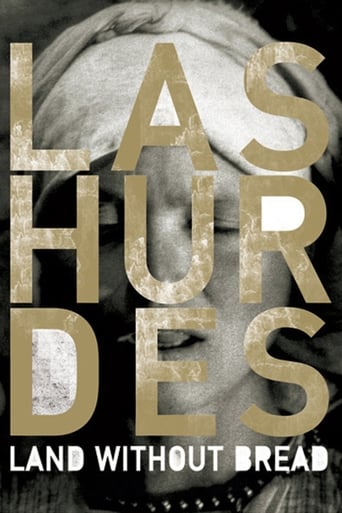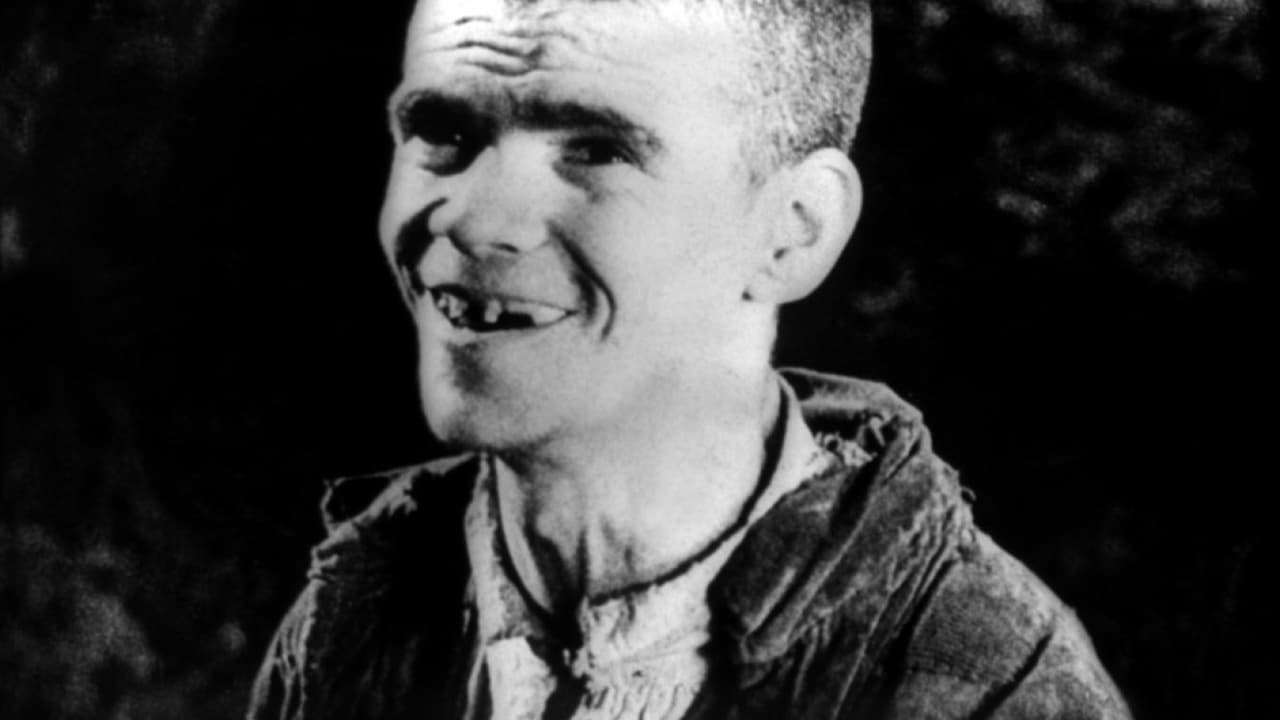Ilpo Hirvonen
Luis Bunuel, a Spanish director who made films in his home country, France, United States and Mexico, where the most of his films are made in. He is the master of surrealism and did several fictional films, but only one documentary, Las Hurdes (1933, Land Without Bread). It shows the life of a poor village in Spain. The cruelty we see feels so real and distressing that the film was banned in Spain and in many other countries. That is the reason why it (still in 2010) hasn't got a Spanish commentary. The original audio commentary is in French.In the citizens of Las Hurdes there are many cripples, midgets and simple-minded people, in result of lack of hygiene, misery and incest. The survival of these people is very uncertain, only one thing is certain: death that waits all of them. The most pathetic form of documentary is tourist film (documentaries where people travel to exotic places and describe the culture). Las Hurdes follows the presentation of the tourist film, it gives us information of the place's history, a summary of geography, education, nutrition and sicknesses. Of course each of us who knows Luis Bunuel, is aware that Las Hurdes isn't even close to a shallow tourist film.Luis Bunuel simply and ruthlessly notes the facts. He films what goes on the country, by letting nothing out. He has announced that he is an atheist, and it can be seen in the film (and generally in his all films). The film shows the incredibly cruelty the people have to deal in their lives, but then it shows us how the morality and religion are pretty much same as in our lives. They have faith, even how miserable their life seems. And there is something holy in this film. Not from religion or a set-up, but from humanity - the holiness of humanity. There is something very humane in Las Hurdes. The thing that makes it is probably the fact that all unnecessary things are cut out from the film. Only the things that matter are shown to us, and that is what makes the film so powerful.We see the people farm grain, eat, study and play games, which are incredibly cruel actually. We see how their life resembles our life. It also makes us think of our responsibility in this misery. Why do we have the right to live a more wealthy life? A very evocative film. Las Hurdes - Land Without Bread shows men, women, children and animals dying. It shows us so realistic images that they start to turn into surrealistic nightmares. The film was banned because of this, because of the horrors it shows. And that is something so two faced. The same thing is with the animal industry - we aren't allowed to see what happens because it might horrify some of us. In Las Hurdes we aren't allowed to see the cruelty happening to the people - it would certainly show the country in a negative light.An amazing documentary by the master of surrealism, Luis Bunuel. Perhaps one of the greatest documentaries ever made, and still it is the only documentary Bunuel ever made. Leaves you speechless.
MisterWhiplash
In a sense, I felt really bad after I saw surrealist Luis Bunuel's third film Land Without Bread (or Las Hurdes), since the imagery and cold, distanced, but un-cannily sympathetic narrative reminded me of the commercials on TV for starving children in Africa and abroad. For a person such as myself seeing this for the first time in this year, when technologies and replenishments are never far from reach, this village pulls at one's heart-strings, and not just in the manipulative Sally Struthers-esque style either. Bunuel uses half an hour to create a historical document with the emotional weight of Resnais Night and Fog, however for a different cause. Though Resnais was making an indictment of society not paying attention at the time to the horrors of the holocaust, and Bunuel is showing day-to-day life in a primitive society, the two films share a quality- these are views of humanity that Government does (or rather did) suppress, and at the least it brought me to an existential catharsis. How is it that people such as the Hurdanos stand to live like this? But that's not to say Land Without Bread is as bleak as a Bergman film being screened for a group of methadone addicts. It is, after all, a Bunuel film, and the sense of surrealism that certainly didn't die down after his great works of art Un Chien Andalou and L'Age D'Or is present. The way he cuts to certain images, however real as can be, take on at times a sub-reality. If one ventures into this film not knowing it was conceived as a filmed document, and is perhaps cynical to believe the stone buildings and desolate, starving, doomed-looking people aren't residents of the area, one could think this is another fictional attempt by Bunuel to take jabs (vicious ones) at the Spanish government (leader Franco, who later changed his policies over the region). It IS real, however, and once it started to dawn on me that the editing and some of the camera moves were a kin to surrealism, though over all these stark, true images, I felt the power of it and of the desperation. Now, seventy-two years after it was current events, Land Without Bread stands not only as a brief history and (as Bunuel considers it) geography lesson, but as an artistic triumph- Bunuel nails the points down and leaves faces and landscapes that etched into one's consciousness. You may feel sad after the film is over, or maybe glad that you're living in the time and place you are now. Any way to look at it, it's a worthwhile film to see.
Dalmas
Some people are celebrating this movie as a fantastic documentary. It's not. As a documentary it would be pretty useless and the people celebrate is as such, hasn't really gotten the point (although they wish they would have).Las Hurdes a hilarious comedy and at the same time an interesting experiment with the nature of film making and it's possibilities to represent reality, as well as distorting it. Las Hurdes is probably the first pseudo-documentary and as such it is both genius and extremely funny, in a bizarre Month Python-way. 8,5/10
homogenik
With this film, Bunuel manipulates the viewer with all of film's might while stating clearly in the film that his work is one of 'objectivity'. Obviously, it is not. For one reason, many scenes 'shot by pure chance' are obvious set-ups (when that poor goat 'accidently' falls off the cliff, you can actually see the gun smoke on the right of the screen!). For another, his concealing of one important information: the Hurdes people were the way they were for a specific reason which is just hinted at in the film. That is, goitre, a sickness caused by lack of iodine (salt). This goitre is the cause of their cretinism and had Bunuel only took the time to make his research (heck, if he checked 'cretinism' in a medical dictionary he'd have found 'goitre') he MIGHT have ended up telling the truth about these people (still, doubtfully). Instead, with his film, he judges them constantly, talking about them as 'cretins', again and again, dramatizing the action, setting-up scenes to create the spectacle, all of this very unacceptable for a documentarist which claims to work for an all-mighty objectivity. Bunuel talks all the time in this film, not letting one word to the people he is filming. He talks FOR them and, even then, JUDGES them. This piece is flawed to it's roots, to it's ideology and it's a real shame it's considered a great film.


 AD
AD



